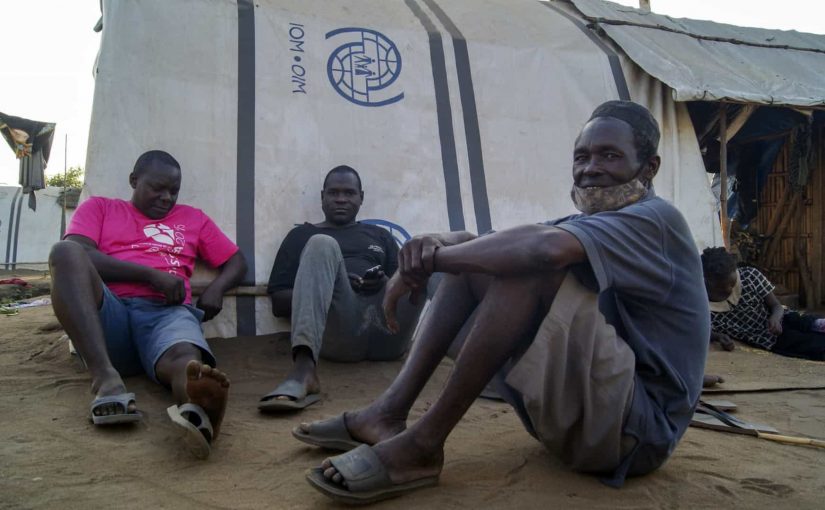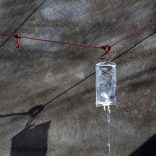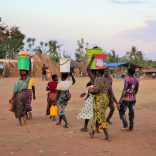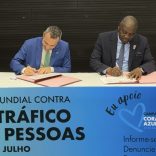Mozambique: Cabo Delgado, Nampula & Niassa Humanitarian Snapshot, as of June 2025
Mozambique: Portugal NGO setting up protection networks to help 25,600 displaced

File photo: Lusa
Around 25,600 people displaced by the war in Cabo Delgado, in northern Mozambique, particularly children and young people, are expected to benefit this year from community social protection networks that Helpo, a Portugal-based organisation is creating on the ground.
“These networks aim to give more support to children and young people, but also to their families, so that they can integrate and rebuild their lives,” said Carolina Reis, manager of the initiative that the non-governmental development organisation is launching in the villages of Mieze, near the provincial capital Pemba.
The Redes para a Proteção (Networks for Protection) project works by bringing together people from each community who will be sound the alarm about vulnerabilities, abuses and cases of exploitation, among other problems, in coordination with institutional actors and local leaders.
Most of the beneficiaries that the project expects to reach are children: around 19,500 of them.
The aim, said Reis, is to take a “closer look” at displaced children, an extra attention justified by the specific context of flight from violence: “they have left their homes, lost family members and have their basic living conditions jeopardised.”
Schools and communities must be trained to welcome them properly and barriers to school entry and progression must be overcome.
“Each network has a representative who will go to Mieze once a month” for a general meeting of the 14 communities and institutions, such as the local administration, police or other authorities, to discuss the situations detected and find solutions.
The emergency school fund will be one of the visible aspects of the project, aimed at the most vulnerable families among the displaced and those who leave most children out of school.
According to Reis, the fund can cover 3,000 children in the 14 communities, based on the initial amount, with the possibility that “other support may come later” and the numbers grow, the manager stressed.
An inability to buy school materials and uniforms are two difficulties already identified by the 11 project activists in the communities – although the directors of the 16 schools involved have already announced that displaced children do not need to wear traditional uniform to attend classes.
“Sometimes what happens is that families are unable to pay for” even the minimum expenses, “because the number of children is large, and so some are left without entering,” Reis stressed, noting that on average each Mozambican woman has five children.
Other expenses that can be covered include travelling to school, or food or other, higher costs, for those who have lost everything. This is where the school emergency fund is to come into play.
For the time being, surveys are underway to define criteria to allow afterwards, within the protection networks, to choose which families will benefit from the support in each community.
The fund will be used to support school attendance from grade 1 to 12.
The Helpo-run initiative is also providing initial training in psychology so that each community can be alert to signs of trauma among displaced children.
The idea is to “enable the communities to give some kind of support, a kind of psychological first-aid” in case of problems that a child might present, and then direct them to the appropriate services, Reis explained.
Redes para a Proteção is supported by Portugal’s national foreign aid institute, Camões, as well as by Mozambikes, a local social venture that provides bicycles at low prices, and the Galp Foundation, the charitable arm of Portuguese energy company Galp, with a total budget of around €180,000 for one year, from January to December 2022.
The initiative comes in the wake of another Helpo action in Pemba, the Karibu project, which aimed to integrate displaced persons in a school environment. Under Karibu, two blocks of three classrooms each were inaugurated in February in the primary schools of Mahate and Sao Carlos Lwanga.
Cabo Delgado province is rich in natural gas but has been terrorised since 2017 by armed rebels, with responsibility for some attacks claimed by the local affiliate of extremist group Islamic State.
There are 784,000 internally people displaced due to the conflict, according to the International Organization for Migration (IOM), and around 4,000 people have been killed, according to the ACLED conflict registration project.
Since July 2021, an offensive by government troops with Rwandan support, later joined by the Southern African Development Community (SADC), has made it possible to regain control of areas where there were rebels, but their flight has seen new attacks in other districts they used as passage or temporary refuge.













Leave a Reply
Be the First to Comment!
You must be logged in to post a comment.
You must be logged in to post a comment.